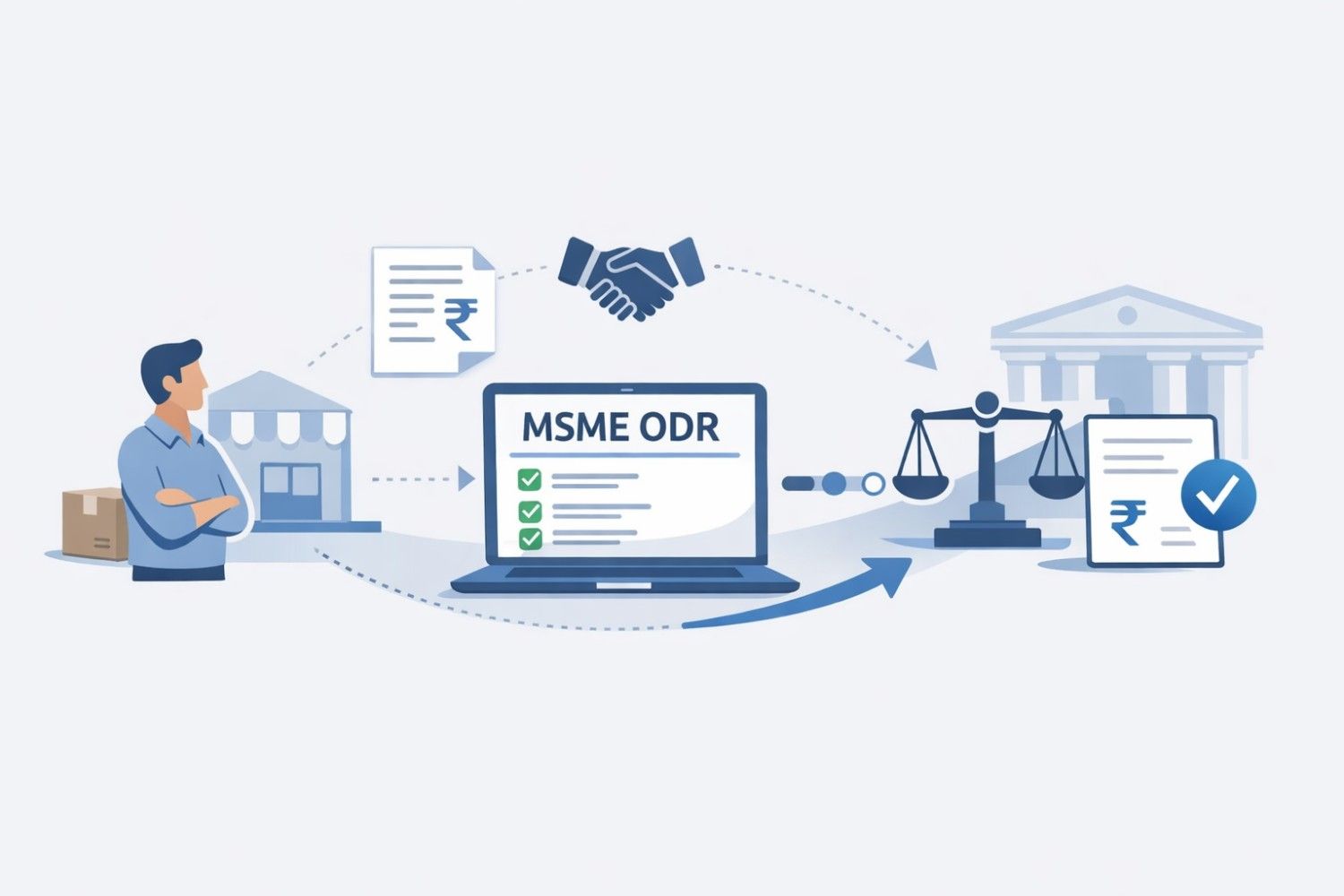DIFFERENCE BETWEEN TRADEMARK, COPYRIGHT AND PATENT (EXPLAINED EASILY)
By the SolvLegal Team
Published on: Oct. 15, 2025, 5:41 p.m.

Have you ever worried that someone might copy your business logo, steal your book idea, or replicate your innovative gadget? In a fast-paced world like India, where creativity and innovation drive growth, protecting your intellectual property (IP) is essential. Trademarks, copyrights, and patents are the key legal tools that help safeguard your unique creations under laws like the Trademarks Act, 1999, Copyright Act, 1957, and Patents Act, 1970. They each serve different purposes: trademarks protect brand identities, copyrights guard creative expressions, and patents shield new inventions. Getting this right can prevent disputes, boost your business value, and give you peace of mind. Let's break it down simply.
In today’s world, protecting your creative work isn’t optional it’s essential. Whether you’re building a brand, creating art, or inventing something new, understanding how intellectual property laws work can make all the difference.
If you’re just starting out, explore SolvLegal’s Legal Templates Library with ready-to-use Trademark, Copyright, and Patent templates drafted by professionals.
HOW TRADEMARKS, COPYRIGHTS, AND PATENTS REALLY DIFFER
At first glance, these terms seem interchangeable, but each one protects something entirely different. Here’s a simple way to understand what each does and when to use them.
A Trademark is your brand's unique identifier, like a logo, name, or slogan that sets your goods or services apart from competitors. It's defined under the Trademarks Act as a mark capable of graphical representation that distinguishes your offerings. Protection helps build customer loyalty and avoids confusion in the market. Registration with the Intellectual Property India office (ipindia.gov.in) isn't mandatory but recommended, lasting 10 years and renewable indefinitely. Without it, you can still claim rights through consistent use.
In Kirloskar Diesel Recon Pvt. Ltd. v. Kirloskar Proprietary Ltd.(1996), the Supreme Court ruled against a company mimicking "Kirloskar" for engines, protecting the original’s market identity. It shows how trademarks shield your business name like "Taste Haven" from confusing knockoffs.
Copyright, on the other hand, protects original creative works such as books, music, art, or software code. It's about the expression of ideas, not the ideas themselves, and arises automatically upon creation under the Copyright Act. Registration with the Copyright Office (copyright.gov.in) provides stronger evidence in court, with protection lasting the author's life plus 60 years. This encourages artists by giving exclusive rights to reproduce or adapt their work, with fair use exceptions for things like education.
Patents cover novel inventions like machines, processes, or compositions that are new, inventive, and industrially useful. Under the Patents Act, they grant a 20-year monopoly after full disclosure in your application to the Patent Office. Exclusions include abstract ideas or software per se, promoting innovation by rewarding inventors temporarily.
A key example is Bajaj Auto Ltd. v. TVS Motor Co. Ltd. (2008), the Delhi High Court upheld Bajaj’s patent on a unique engine, stopping TVS from replicating it. It’s your defense against someone stealing your invention design.
HOW TO USE TRADEMARKS, COPYRIGHTS, AND PATENTS IN REAL LIFE
If you’re building a brand, a trademark is your best ally. It protects what makes your business you your name, logo, or slogan and keeps others from confusing customers with similar identities.
Think of Amul, whose iconic dairy logo and “Taste of India” tagline have become part of every household. Both were trademarked early on, shielding the brand from imitators and helping it earn the trust it still enjoys today.
If you’re creating something from the heart writing, composing music, painting, or designing copyright is your creative shield. It ensures your original work can’t be copied or reused without your say.
Take A.R. Rahman, for instance. His copyrights over timeless scores like “Jai Ho” let him control how his music is used, ensuring both recognition and royalties protecting not just his work, but his legacy. And if you’re an innovator building something new a machine, a formula, or a process a patent is your best defense. It gives you exclusive rights to profit from your invention and stops others from replicating it.
That’s what empowered the creators of Jaipur Foot, whose patented low-cost prosthetic design stopped copycats and helped them reach millions of people globally with affordable mobility solutions.
CONCLUSION
At the end of the day, your ideas, creations, and innovations are more than just work they’re extensions of who you are. Whether it’s a logo that defines your brand, a song that moves hearts, or an invention that changes lives, every creation deserves legal protection.
That’s where trademarks, copyrights, and patents step in not as paperwork, but as partners that secure your originality and reward your effort. Each one plays a unique role: trademarks build identity, copyrights guard creativity, and patents protect innovation.
Understanding how these rights work under Indian law doesn’t just keep copycats away it helps you turn your ideas into assets. Once protected, your intellectual property can be licensed, sold, or commercialized, creating real value for you and your business. So, whether you’re an artist, an entrepreneur, or an inventor, don’t wait until someone copies your idea to act. Get protected early and let your creativity grow without fear.
If you’re unsure which applies to your work, our experts can help. Explore SolvLegal’s Quick Legal Services.
ABOUT THE AUTHOR
This blog is authored by Shridansh Tripathi, a second-year law student at the Department of Legal Studies and Research, Barkatullah University, Bhopal.
REVIEWED BY
This article was reviewed by Prakhar Rai, a seasoned corporate lawyer. He advises extensively on intellectual property, contracts, mergers and acquisitions, and private equity and venture capital. His work also includes data protection and privacy, regulatory and compliance advisory, white-collar crime, technology and startup law, and commercial dispute resolution.
DISCLAIMER
The information provided in this article is for general educational purposes and does not constitute legal advice. Readers are encouraged to seek professional counsel before acting on any information herein. SolvLegal and the author disclaims any liability arising from reliance on this content.

.jpeg)




